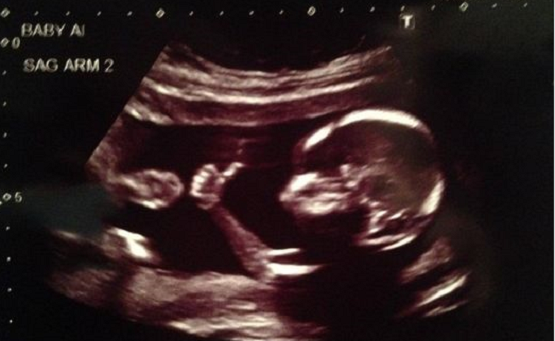The Florida Supreme Court has ruled that the 15-week abortion ban Governor Ron DeSantis signed into law last year can continue saving babies from abortions while the pro-abortion lawsuit against it continues.
The ruling it a good sign about the long-term prospects for upholding the pro-life law and using it as a springboard to pass stronger legislation protecting more babies from abortion.
Planned Parenthood, the American Civil Liberties Union handsome abortion companies tried to get the state’s highest court to halt the law while their case continues. The falsely claim that the Florida Constitution has a privacy clause that enables a right to abortion even though the clause was never meant to apply to killing babies.
In September, Attorney General Ashley Moody’s office urged the Supreme Court to reject the motion for a stay.
“Florida’s Privacy Clause creates a right ‘to be let alone and free from governmental intrusion into the person’s private life,’” lawyers in Moody’s office wrote in one filing. “That language is naturally read to limit governmental snooping and information-gathering — but not to establish a liberty to destroy unborn (or any other) life.”
Justices Charles Canady, Ricky Polston, John Couriel and Jamie Grosshans were in the majority while Justice Jorge Labarga wrote a dissent. Chief Justice Carlos Muniz and Justice Renatha Francis did not take part in the decision.
Last summer, a Florida judge issued a temporary restraining order blocking enforcement of a 15-week abortion ban Governor Ron DeSantis signed to save babies from abortions. Less than an hour after the judge blocked the ban, DeSantis appealed the order. His appeal automatically nullified the order.
Click Like if you are pro-life to like the LifeNews Facebook page!
In his original ruling, the lower Judge John Cooper acknowledged the U.S. Supreme Court’s decision to overturn Roe in the Dobbs case but noted that the Florida Supreme Court has ruled that the privacy clause in the state’s constitution can be used to justify overturning pro-life laws. Critics note the clause was adopted prior to roe v. Wade, says nothing about abortion and has been misused to allow an unlimited “right” to abortion when the intention of the clause was to value privacy from government intrusion.
When DeSantis signed the law, he called it a celebration of life.
“We’re here today to protect life,” Governor DeSantis said at a large ceremony to sign the bill back in April. “We’re here today to defend those who can’t defend themselves.”
When DeSantis signed the law, the governor said the bill “protects the rights of unborn children starting at 15 weeks. This is a time where these babies have beating hearts. They can move, they can taste, they can see, they can feel pain, they can suck their thumb, and they have brain waves.”
“Life is a sacred gift worthy of our protection, and I am proud to sign this great piece of legislation which represents the most significant protections for life in the state’s modern history,” he said.
“So this will represent the most significant protections for life that have been enacted in this state in a generation.”
The legislation, which would have gone into effect today, bans abortions after 15 weeks of pregnancy, with exceptions if the mother’s life is at risk or the unborn baby has a fatal disorder. It also includes measures to reduce infant mortality and a requirement that abortion facilities report suspected human trafficking cases to the state.
As LifeNews reported, the Supreme Court has overturned Roe v. Wade, with a 6-3 majority ruling in the Dobbs case that “The Constitution does not confer a right to abortion” — allowing states to ban abortions and protect unborn babies. The high court also ruled 6-3 uphold the Mississippi 15-week abortion ban so states can further limit abortions and to get rid of the false viability standard.
Chief Justice John Roberts technically voted for the judgment but, in his concurring opinion, disagreed with the reasoning and said he wanted to keep abortions legal but with a new standard.
“Abortion presents a profound moral question. The Constitution does not prohibit the citizens of each State from regulating or prohibiting abortion. Roe and Casey arrogated that authority. We now overrule those decisions and return that authority to the people and their elected representatives,” Alito wrote.
“Roe was egregiously wrong from the start. Its reasoning was exceptionally weak, and the decision has had damaging consequences,” Alito wrote. “And far from bringing about a national settlement of the abortion issue, Roe and Casey have enflamed debate and deepened division.”
Justices Sonia Sotomayor, Elena Kagan and Stephen Breyer authored a joint dissent condemning the decision as enabling states to enact “draconian” restrictions on women.
Polls show Americans are pro-life on abortion and a new national poll shows 75% of Americans essentially agree with the Supreme Court overturning Roe.
Despite false reports that abortion bans would prevent doctors from treating pregnant women for miscarriages or ectopic pregnancies, pro-life doctors confirm that is not the case. Some 35 states have laws making it clear that miscarriage is not abortion and every state with an abortion ban allows treatment for both.








